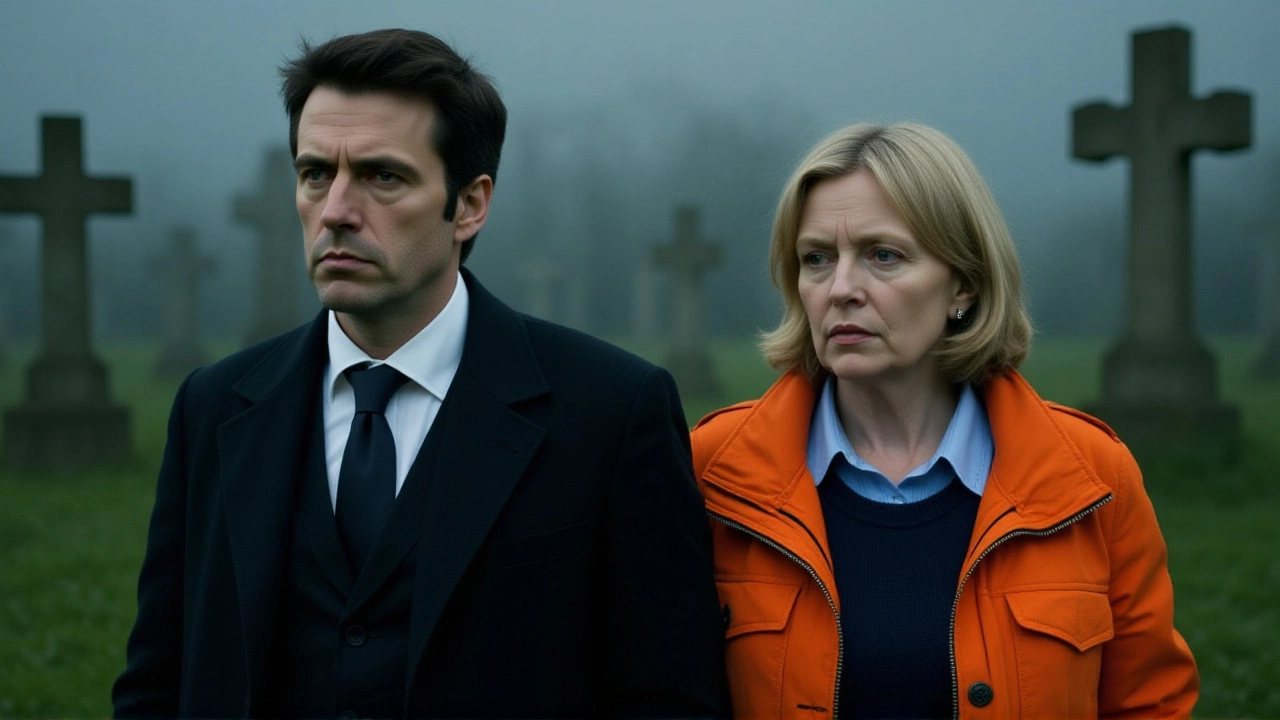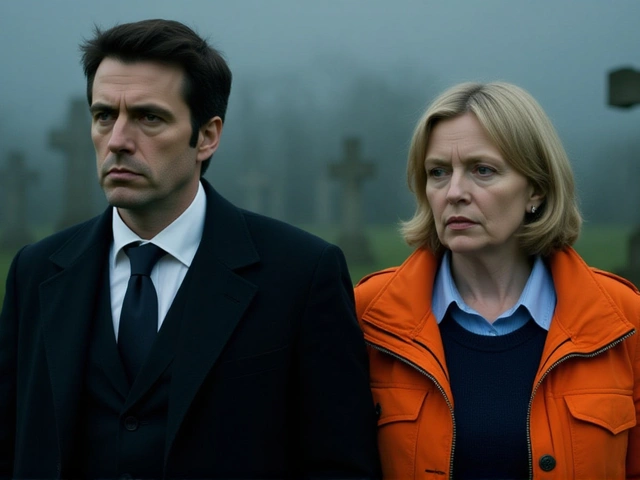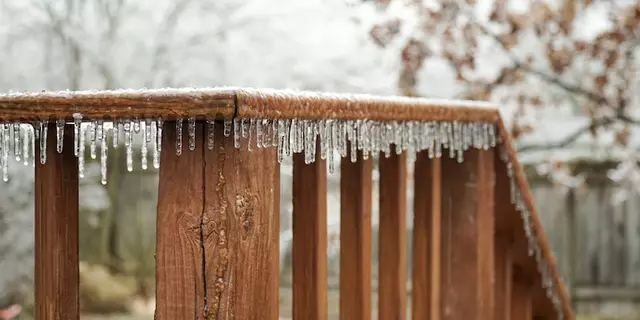Broadchurch at 12: David Tennant and Olivia Colman’s Crime Masterpiece Still Sets the Bar for Psychological Thrillers

Twelve years after its debut, Broadchurch still feels like a wound that hasn’t healed. The British crime drama, which premiered on ITV on March 4, 2013, didn’t just captivate audiences—it carved a new standard for how television handles grief, guilt, and the quiet collapse of a community. At its center: David Tennant as the brooding, exhausted Detective Inspector Alec Hardy, and Olivia Colman as the heartbreakingly human Detective Sergeant Ellie Miller, racing to solve the murder of 11-year-old Danny Latimer on a sun-drenched Dorset beach. The show’s 92% Rotten Tomatoes score isn’t just impressive—it’s almost sacred in an era where even acclaimed series struggle to crack 80%.
One Crime, a Thousand Ripples
What made Broadchurch different wasn’t the twist—it was the weight. While most procedurals reset after each episode, this one let the trauma linger. The corpse of Danny Latimer wasn’t just a case file; it was a detonator. Neighbors turned on neighbors. Parents questioned their own children. The town of Broadchurch, a fictional coastal village in southern England, became a microcosm of how shock fractures trust. Screen Rant nailed it: “We watch these parents buckle under impossible guilt, friends question their loyalties, and a once-friendly town curdle under suspicion.” There were no quick fixes. No tidy endings. Just the slow, suffocating realization that evil doesn’t always wear a mask—it sometimes lives next door.
The Unseen Burden on the Actors
Here’s the twist: David Tennant didn’t know who killed Danny Latimer while filming. Not even close. In interviews, he’s admitted he was kept in the dark—just like the audience—to preserve the raw, unraveling tension in his performance. “I was as lost as everyone else,” he told LADbible in 2025. That authenticity bled into every glance, every clenched jaw. And Olivia Colman? She didn’t just play a detective; she embodied the erosion of empathy. “She wears empathy openly,” Screen Rant noted, “which slowly erodes as the case eats away at her.” That’s not acting—it’s excavation.
A Benchmark in a Crowded Field
Compare Broadchurch to Netflix’s Mindhunter, and you’ll see why critics keep returning to it. Both shows trust the viewer to sit with discomfort. Both refuse to rush the reveal. But while Mindhunter dives into the minds of serial killers, Broadchurch stares into the eyes of ordinary people pushed to their limits. “It’s not a copy,” Screen Rant wrote, “but it scratches the same itch.” And with a 98% rating for its final season, the show didn’t just end—it ascended. Even PBS’s newer series Patience, which earned a 92% score in 2025, had to acknowledge it was chasing a ghost—Broadchurch’s legacy.
Why It Still Matters in 2025
It’s easy to forget how rare this was. In 2013, streaming was rising, but network TV still dominated. ITV took a gamble on a slow-burn, character-driven drama with no explosions, no car chases, just rain-slicked cliffs and whispered confessions. And it paid off. The show’s 8.3 IMDb rating, sustained over a decade, proves viewers didn’t just watch—they carried it with them. When Netflix’s The Thursday Murder Club landed a 76% Rotten Tomatoes score in 2025, critics didn’t just compare it to other adaptations—they compared it to Broadchurch. And it lost.
Even the director, James Strong, didn’t just film scenes—he built atmosphere. Every shot of the Dorset coastline, every echo of waves against rocks, felt like a sigh. The show’s creator, Chris Chibnall, and executive producer Jane Featherstone, understood that the real mystery wasn’t who killed Danny Latimer—it was how a community survives the knowing.
What Comes After Broadchurch?
There’s been talk of a reboot. A spinoff. A movie. But the truth? The show doesn’t need one. Its power lies in its finality. It ended in 2017, and it hasn’t been touched since. That’s rare. Most series get dragged back for more seasons, more money, more noise. Broadchurch didn’t. It walked away, leaving behind a silence that’s louder than any sequel could be.
Ask any fan what they remember most, and they won’t talk about the killer. They’ll talk about the silence after the verdict. The way Miller’s voice cracked when she said, “I just wanted to fix it.” The way Hardy stared at the sea, knowing he’d never really understand. That’s the mark of a masterpiece—not how many clues it dropped, but how many hearts it changed.
Frequently Asked Questions
Why does Broadchurch have such a high Rotten Tomatoes score after 12 years?
Broadchurch’s 92% critics’ score endures because it prioritized emotional truth over plot twists. Unlike many crime dramas that reset after each episode, it let grief linger, making every revelation feel heavier. Its third season scored 98%, the highest of any season, proving its storytelling deepened over time. Critics still cite its restraint and character depth as benchmarks for the genre.
Did David Tennant know who killed Danny Latimer during filming?
No, Tennant was deliberately kept in the dark about the killer’s identity until the final episodes. This was a creative decision by creator Chris Chibnall to ensure Tennant’s performance reflected genuine shock and moral confusion. The same applied to many supporting actors, heightening the authenticity of their reactions during key scenes.
How did Broadchurch compare to other crime dramas like Mindhunter?
While Mindhunter focused on the psychology of serial killers, Broadchurch explored the collective trauma of a community. Both shows trust viewers to sit with ambiguity, but Broadchurch’s strength lies in its intimate scale—every suspect, every lie, every tear felt personal. Critics note it delivers the same slow-burn tension as Mindhunter, but with more emotional stakes and fewer procedural tropes.
Is there a chance Broadchurch will return for another season?
No official plans exist. Creator Chris Chibnall has stated the story was always meant to be a three-season arc, and the finale was designed as a definitive ending. While rumors surface occasionally, the cast and crew have consistently resisted revivals, believing the show’s power comes from its closure. A reboot would risk diluting its legacy.
What role did the setting of Dorset play in the show’s success?
The fictional town of Broadchurch, filmed in West Bay, Dorset, wasn’t just a backdrop—it was a character. The cliffs, the sea, the quiet streets all mirrored the show’s themes: beauty hiding pain, isolation beneath community. The natural lighting, the constant sound of waves, and the small-town claustrophobia made the crime feel inescapable. Fans often say the location felt more real than many actual towns.
Why is Olivia Colman’s performance considered groundbreaking?
Colman portrayed Ellie Miller as a detective who wasn’t hardened by the job—she was broken by it. Unlike the stoic archetypes common in crime dramas, Miller’s vulnerability, her maternal instincts, and her gradual loss of faith in justice made her feel human. Critics called it a “masterclass in emotional erosion,” and it earned her a BAFTA, helping launch her into global acclaim before her Oscar-winning turn in The Favourite.




